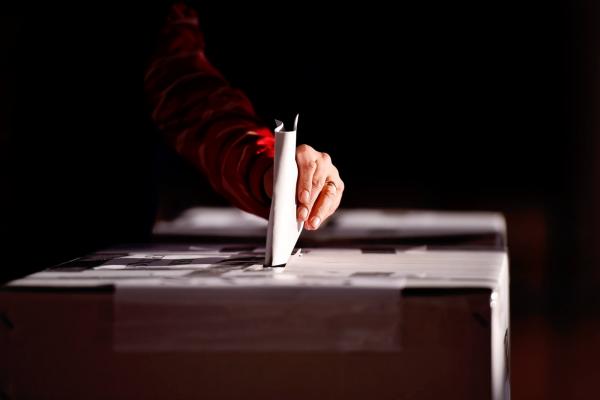IN 2016, VOTERS faced extensive efforts to make voting more difficult, particularly for people of color and those who are poor. These efforts at voter suppression occurred as a result of GOP gains in governors’ races and state legislatures while Barack Obama was president—and also as a result of the Supreme Court gutting a key provision of the Voting Rights Act in 2013.
Between those two factors, 23 states—including some key battlegrounds in the presidential election—had new voter restrictions in place for the 2016 election. Examples include laws that eliminated polling places or moved them to less accessible locations, reduced polling hours, tightened voter-ID requirements, “purged” voter rolls, and reduced early voting and Sunday voting, which are popular among minority voters in certain regions.
As we approach the 2018 midterms, we need to protect the right to vote for citizens of all races, economic levels, and political persuasions. This is an imago dei issue: If we believe that all human beings are created in the image of God (Genesis 1:26), then efforts to prevent some of God’s children from exercising their franchise must be opposed as a matter of fidelity to our faith. It’s also a Matthew 25 issue: If we believe that how we treat people living in poverty and those who have been caught up in the system of mass incarceration is how we treat Christ himself, then we have a clear Christian mandate to ensure that society’s most vulnerable can exercise the right to vote.
In-person voter fraud is vanishingly rare, to the tune of only 31 documented cases out of 1 billion ballots cast between 2000 and 2014. To put it another way, the odds that any given person will attempt in-person voter fraud are something like 1 in 32 million, significantly lower than the odds of being struck by lightning. Twice.
Stricter ID requirements and other measures claimed to combat “voter fraud” are actually efforts to suppress the vote of certain people. As Christians living in a representative democracy, we should champion the right of all people to participate in the act of self-government by exercising their right to vote, regardless of who they vote for.
Because protecting voters is integral to creating the just society our faith calls us to seek, Sojourners has long worked with other faith groups, such as the National African American Clergy Network, as well as groups of legal professionals, such as the Lawyers’ Committee for Civil Rights Under Law, to bring lawyers and clergy together for discussion and action centered on protecting vulnerable voters. This year, we are expanding our involvement in this area through a new “Lawyers and Collars” initiative that will involve lawyers and clergy working together in important and innovative ways.
There is symbolic power in clergy, wearing their clerical collars, showing up alongside lawyers on Election Day to offer protection to voters who may be targeted for suppression or intimidation, and that work will continue and expand this November at polling places across the country.
However, there is also much that can be done—and needs to be done—well before Election Day. For example, in 24 states the chief election official is an elected secretary of state. The secretary of state has broad powers over how elections are administered and can make it easier or more difficult for voters to exercise their franchise. Because these are mostly elected officials, they must respond to public pressure from constituents if they want to keep their jobs—which is why we plan to have lawyers and clergy in a number of states work with the secretary of state’s office to ensure voters are protected, and in some cases let officials know that we’re watching them.
Another way we can stand for vulnerable people is to vote ourselves—in elections at every level of government and on ballot initiatives. This fall, for example, an initiative on the ballot in Florida would return the right to vote to more than a million people with felony convictions, many of whom committed relatively minor, nonviolent drug crimes, and all of whom have paid their debt to society. Several states have passed measures to make it easier to register to vote, and others have introduced legislation to do so that so far lacks sufficient support. Electing state legislators, governors, and secretaries of state who support voting rights is something we all can do by exercising our own right to vote.
In a representative democracy, the right to vote is one of the most fundamental a person can have, and a prerequisite for retaining a host of other rights and protections. We must protect this most basic of rights for all our brothers and sisters, and that work must start well before any ballots are cast.

Got something to say about what you're reading? We value your feedback!

